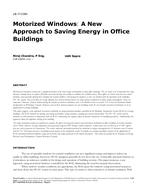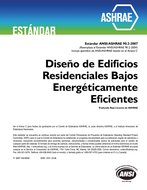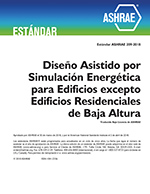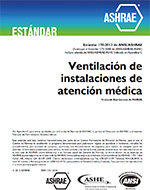Description
Mechanical ventilation accounts for a significant portion of the total energy consumption in large office buildings. The air needs to be transported over large distances through ducts, it requires filtration and needs heating and cooling to condition the ventilated space. Most offices in North America have closed windows, and manually opening these windows for natural airflow is discouraged by designers as this can interfere with the operation of the building’s HVAC system. The recent drive for energy efficiency has created renewed interest in using natural ventilation to reduce energy consumption. There are numerous “showcase” projects demonstrating the benefits of natural ventilation, such as the Bullitt Centre in Seattle, USA and, the Manitoba Hydro headquarters in Winnipeg, Canada. However, most of these showcase projects are new buildings while the real benefits of natural ventilation are in its application to existing buildings.
This paper suggests a new approach to natural ventilation by using motorized windows controlled by the Building Automation System (BAS) in existing buildings. The BAS controls the opening and closing of windows, using actuators, avoiding any manual intervention. The HVAC system and the windows are thus operated in conjunction with the BAS, eliminating any negative effects of manual interference on building operations. Additionally, this approach allows for nighttime cooling of the building.
An energy simulation study was conducted to analyze the effects of using joint natural and mechanical ventilation in office buildings in various locations across North America. Energy simulations were generated using the MIT Design Advisor software. A floor plate area of 1056 sq.m (11367 square feet) was used to generate the simulations. The results indicated substantial potential for reduction in energy consumption for 22 locations across Canada and the US. This paper presents a breakdown and analysis of the simulation results. It includes an economic feasibility analysis of the application of BAS-controlled motorized windows using rate-of-return and simple payback on the initial investment. This study was funded by the Program of Energy Research and Development, Natural Resources Canada.
Citation: 2017 Annual Conference, Long Beach, CA, Conference Papers
Product Details
- Published:
- 2017
- Number of Pages:
- 8
- Units of Measure:
- Dual
- File Size:
- 1 file , 1.5 MB
- Product Code(s):
- D-LB-17-C064




